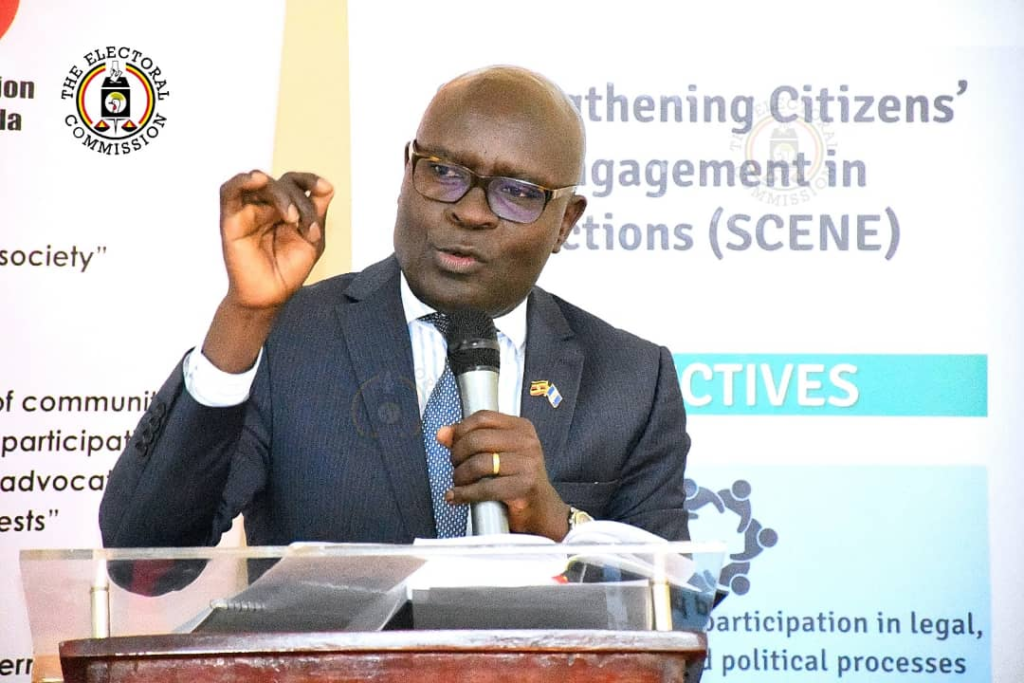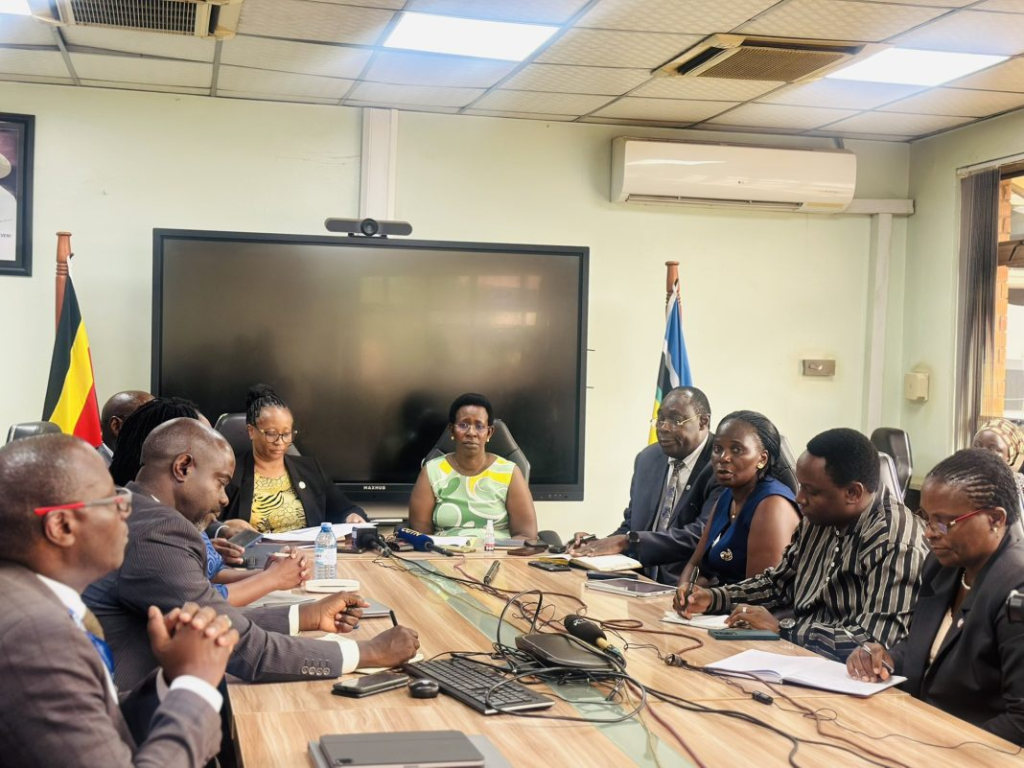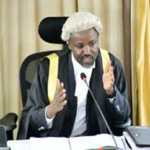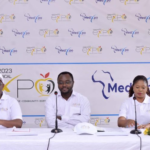Use your responsible Positions to Ensure the Government’s Intended Objectives are Achieved, Minister Babalanda to district leaders
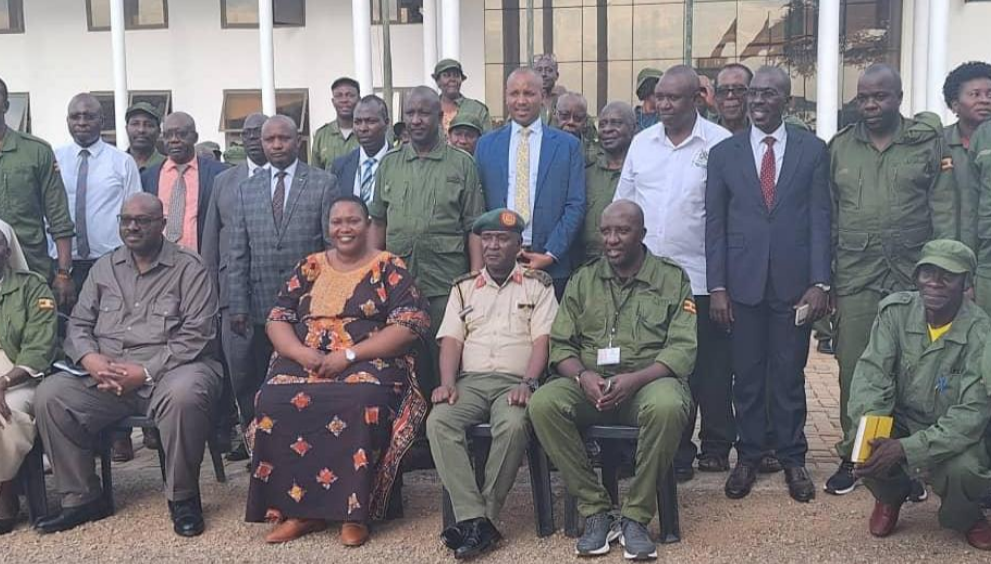
The Minister for Presidency, Hon. Babirye Milly Babalanda has highlighted that Uganda is facing challenges in reaching the middle-income status, due to a significant portion of its population being stuck in subsistence productionwhile overseeing the conclusion of the 4-day retreat for district leaders of the Central Region at the National Leadership Institute (NALI) in Kyankwanzi.
The Minister for the Presidency, Hon. Babirye Milly Babalanda has emphasized that Uganda faces difficulties in achieving middle-income status because a sizeable portion of its population is stuck in subsistence production.
Hon. Babalanda shared this concerning information on August 24th, 2023, while overseeing the conclusion of the 4-day retreat for district leaders of the Central Region at the National Leadership Institute (NALI) in Kyankwanzi.
The prime aim for organizing this retreat, by the Manifesto Implementation Unit-Office of the President, was to tackle the obligations specified in the 2021/2026 manifesto, along with the 23 presidential strategic directives and guidelines.
Hon Babalanda strongly recommended that once local government leaders successfully encourage people to embrace a mindset focused on commercial production, Uganda will make rapid strides toward becoming a middle-income country.
According to her, achieving this goal will depend on teamwork, where leaders set aside their differences stemming from varying opinions and work together cohesively to drive socioeconomic transformation.
“A large portion of Ugandan households, 39% are still stuck in subsistence production, making it hard for Uganda to attain the middle-income status. Therefore, as leaders, what are your initiatives? You need to change the mindsets of these people so that they enter the money economy,” Hon. Babalanda stressed.
Hence, she emphasized that the government is actively promoting the Parish Development Model (PDM) and the Emyooga poverty alleviation programs to integrate as many Ugandans as possible into the formal economy.
In line with this objective, the Minister revealed that the government has allocated a total of Ugx. 1.059 trillion for the PDM revolving fund, and this Financial Year, an additional Ugx. 1.1 trillion has been designated for the PDM initiative.
She also pointed out other obstacles hindering Uganda’s progress towards achieving middle-income status. These challenges include the high cost of doing business, which diminishes Uganda’s competitiveness in the global market, difficulties in land acquisition for various state development projects, and the detrimental impact of corruption on the nation’s pursuit of socioeconomic advancement.
Addressing the attendees, Brig. Gen. Charles Kisembo, the Director of NALI, underscored the significance of proper ideological orientation among local government leaders as a fundamental pillar of driving socio-economic transformation.
He stressed the importance of these leaders thoroughly understanding the values and principles outlined in the NRM manifesto, which serves as the guiding force behind the party’s policies, decisions, and actions.
By grasping this essential knowledge, he said, these leaders can effectively impart it to the people they serve.
“In our roles as leaders, we require a solid ideological foundation in our country, one that ensures national cohesion—a sentiment vital for Uganda’s socioeconomic transformation. Take the knowledge you have gained here to make a positive difference in the lives of those you lead,” he remarked.
Mr. Ben Kumumanya, the Permanent Secretary in the Ministry of Local Government, shared insights with the media during the event’s conclusion, highlighting the critical nature of this retreat.
He commented, “These meetings are highly valuable because they bring together all leaders appointed by the President, those chosen by the Minister of Local Government, as well as elected leaders, all under one roof. This gathering allows them to reaffirm their roles and responsibilities, enhancing their capacity for effectively implementing the NRM manifesto.”
The retreat drew participation from leaders representing 27 local governments in the central region. The attendees included Resident City Commissioners (RCCs), Resident District Commissioners (RDCs) from various cities and local governments, LC5 Chairpersons, Chief Administrative Officers, town clerks for cities and municipalities, NRM district chairpersons, mayors, representatives from Operation Wealth Creation (OWC), Presidential advisors from the central region, and commissioners from the RDC secretariat.
The main objectives of the retreat coincide with the importance of Kampala and the central region’s contribution to Uganda’s progress. Based on data from 2022 produced by the Uganda Bureau of Statistics (UBOS), the central region accounted for 27 percent of the country’s overall population.
Furthermore, it encompassed 54 percent of the total urban population, demonstrating significant urban growth. Additionally, the region possesses substantial economic promise because of its role as a crucial industrial centre, accommodating numerous industries, businesses, farming initiatives, and fishing operations.


